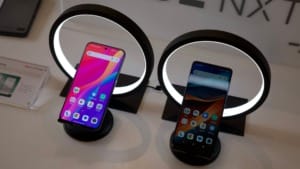Huawei introduces HarmonyOS Next, a new non-Android smartphone operating system
Huawei launches the beta version of its non-Android smartphone operating system, HarmonyOS Next, introducing new features and enhanced security.

Huawei has officially introduced its standalone smartphone operating system, with the beta version now accessible to developers eager to delve into Huawei’s mobile services.
Table Of Content
A new operating system was unveiled at a developer conference
At the Huawei Developer Conference 2024 (HDC 2024), the Chinese telecommunications giant unveiled its new smartphone operating system, HarmonyOS Next. This innovative OS is not based on an Android fork, marking a significant shift in Huawei’s approach to mobile technology.
Unlike previous versions, which relied on the Android Open Source Project core, HarmonyOS Next is built on its own HarmonyOS microkernel. This means that Huawei’s new phone OS is neither iOS nor Android. It is an entirely different system that supports Huawei Mobile Services, rendering Android APKs and apps incompatible with the latest OS.
HarmonyOS Next is a multi-platform operating system, but the HDC 2024 presentation highlighted its capabilities on smartphones.
A leap in performance and connectivity
According to the fansite Huawei Central, the company has spent the past five years developing HarmonyOS Next. This development includes its architecture and various components, such as the Pangu AI large language model, ArkUI programming framework, and Ark multimedia and graphics engines.
Huawei claims that the new operating system boosts overall performance efficiency by 30% and enhances connectivity between Huawei devices by threefold. Additionally, it reduces power consumption by 20%, contributing to a more energy-efficient device. The OS also employs generative AI to create images and “repair sound” for users with speech impairments.
Security and privacy are critical focuses of HarmonyOS Next. Huawei has integrated an onboard security and privacy core called Star Shield. This feature provides system-level file encryption and enhanced security for nine specific app permissions, ensuring a higher level of privacy and security for users.
Limited availability for beta testing
Currently, the beta version of HarmonyOS Next is available only in China. This limited release allows developers in China to explore the new system and integrate their apps with Huawei’s Mobile Services.
Huawei’s launch of HarmonyOS Next marks a bold step in its journey towards establishing a unique identity in the smartphone market. As the beta testing phase progresses, seeing how developers and users respond to this new operating system will be interesting.
















